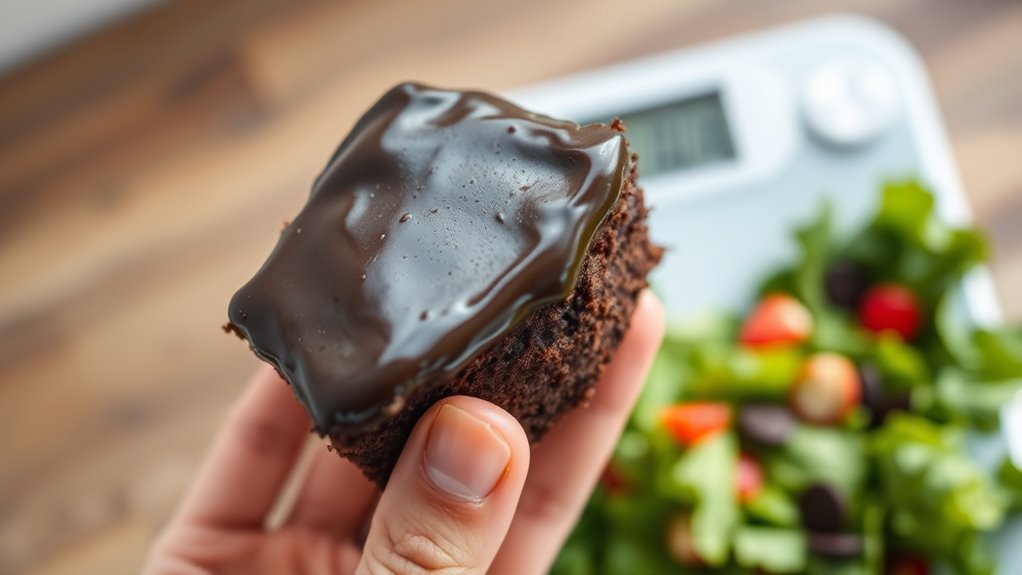The #1 Habit of People Who Lose Weight and Keep It Off!
If you’ve ever tried to lose weight, you know it’s not just about hitting the gym or counting calories. One habit stands out as the game-changer for those who shed pounds and keep them off: consistent meal planning. It might sound simple, but planning your meals can make a huge difference in your choices, stress levels, and even your wallet. Curious about how to start this habit and stick to it? Let’s explore what makes meal planning so powerful.
Understanding the Importance of Meal Planning
When you think about losing weight, meal planning mightn’t be the first thing that comes to mind, but it can make a world of difference.
Imagine waking up and knowing exactly what you’re eating for the day—no last-minute junk food grabs! Meal planning helps you make healthier choices by preparing balanced meals ahead of time, giving you the freedom to focus on other things.
It’s a long-term weight loss habit that builds discipline, and it keeps you accountable. You’ll find it easier to resist temptation when you have nutritious meals ready to go.
Plus, planning your meals can save you time and money, making your weight loss journey smoother and more enjoyable.
The Connection Between Meal Planning and Weight Loss
Meal planning isn’t just a chore; it’s a game-changer for your weight loss journey. When you take the time to plan your meals, you’re setting yourself up for success.
You’ll know exactly what you’re eating, which helps you avoid those tempting, unhealthy choices that creep in when you’re hungry. Plus, meal planning saves you time and energy during busy days, so you won’t feel rushed into grabbing fast food.
Think of it as giving yourself a roadmap; it keeps you on track and reduces stress. You can also experiment with new recipes and healthier ingredients, making eating exciting rather than boring.
Success Stories: Real-Life Examples of Meal Planners
Many folks have found that meal planning isn’t just about sticking to a diet; it’s a powerful tool for transforming their eating habits and, ultimately, their lives.
You might be wondering how it can work for you. Here are some inspiring success stories to consider:
-
A busy mom who lost 30 pounds by prepping meals on Sundays, saving time and stress during the week.
-
A college student who managed to stay healthy and fit by planning simple, nutritious meals that fit his budget.
-
A retired couple that discovered cooking together made meal planning fun, leading to a combined weight loss of 50 pounds!
These real-life examples show that with a little effort and creativity, meal planning can lead to lasting changes and a healthier lifestyle.
Tips for Effective Meal Planning
Effective meal planning can feel like a daunting task at first, but it’s all about finding a rhythm that works for you. Start by dedicating a specific day each week to plan your meals. Grab a notebook or use an app—whatever helps you stay organized.
Choose recipes that excite you, and don’t hesitate to mix things up! Make a grocery list based on your meal plan; it’ll save you time and keep you from impulse buys.
Batch cooking can be a game-changer, too—prepare meals in advance so you’ve got healthy options ready to go.
Lastly, don’t stress if things don’t go perfectly; flexibility is key. Remember, it’s about progress, not perfection, and you’re on the right track!
Overcoming Challenges in Meal Planning
While tackling meal planning can sometimes feel like climbing a mountain, there are plenty of ways to navigate the bumps along the way.
You might face obstacles like time constraints, ingredient availability, or simply feeling overwhelmed. Here are some tips to help you conquer those challenges:
- Set aside a specific time each week to plan your meals.
- Keep a running grocery list to ensure you’ve got everything you need when you shop.
- Embrace flexibility; if a recipe doesn’t work out, swap it with something easier.
Making Meal Planning a Sustainable Habit
Getting into the groove of meal planning can be a game changer when you’re trying to lose weight, but making it a habit is where the real magic happens.
Start by carving out a specific time each week to plan your meals. It doesn’t have to be fancy; just grab a notebook or use an app. Think about what you love to eat, and create a balanced menu that excites you.
Don’t forget to keep it flexible—if life throws a curveball, swap meals around! As you get used to planning, it’ll feel less like a chore and more like a fun puzzle.





